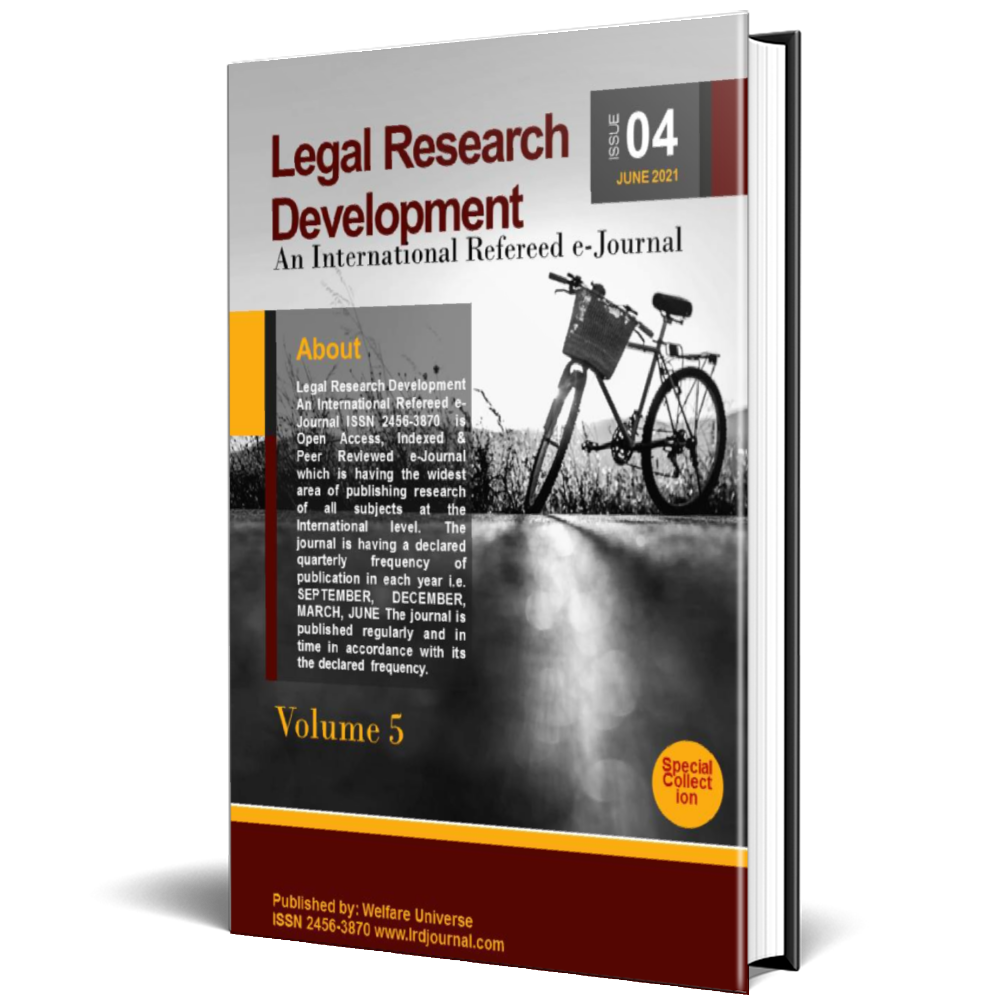A Review Of Judicial System In Ancient India
DOI:
https://doi.org/10.53724/lrd/v3n1.02Keywords:
Judicial System, Enforcement system of Judiciary in India, Quality of Justice, Ancient Judicial SystemAbstract
India has the highest law in the world. There is no other form of judgment with an individual or higher. But before describing the judiciary system in ancient India I have to give a warning. The learner should reject the major allegations of the Jurisprudence of India as well as the Indian law enforcement system by some British writers. I will make a few examples. Henry Maine described the ancient Indian legal system as "a tool for evil". The Anglo-Indian lawyer called this “Indian life” practices before Britain came back to India: “It (British rule in India) is a survey of foreign directors to oversee foreign sectors, to align Europe's Oriental cultural practices, and to formulate specific laws. The highest among the ruthless nations associated with the government for empty authorities1. ”Alan Gledhill, a retired member of the Indian Civil Service, wrote that when Britain took power in India," there was a breakdown of legal laws.
References
Adams, Thomas F., Law Enforcement: An Introduction to the Police Role in the Community, Englewood Cliffs, New Jersey, 1968.
Agarwal, B.D., ―Criminal Justice System: Is Lie Oriented‖, Criminal Law Journal, Vol. 99, December1999.
*Assistant Professor Dept. of Law, OPJS University Churu (Rajasthan)
**Research Scholar, OPJS University Churu (Rajasthan)
Agarwal, Rajender Saran, Crime and Punishment in New Perspective, Mittal publication, Delhi 1986.
Agarwal, Vineet: Recasting Criminal Justice System Using Electric Current Model‖, CBI Bulletin, Vol. 8, September 2000.
Agrawala, S.K. “Protective Discrimination and Backward Classes in India” in Mohammed Imam (Ed.), Minorities and the Law (1972).
Alaxander, P.J. (ed.): Policing India in the New Millennium, Allied Publishers, New Delhi, 2002.
Chakraborty, N.K.: Probation System in the Administration of Criminal Justice, Deep and Deep Publications, New Delhi, 1995.
Chambliss, William J. and Courtless, Thomas F., Criminal Law, Criminology and Criminal Justice, Books Code Publishing Co, California, 1992.
Dayal, S.: The Constitutional Law of India (1976).
Deb, R.: Police and Administration of Criminal Justice‖, CBI Bulletin, Vol. 26, February 1992.
Dharmadhikafi, C.S.: Criminal Justice System and Tribes in India‖, Central India Law Quarterly, Vol. 1, July-September 1988.
Diwan, Paras, Indian Constitution: A Document of People’s Faith and Aspirations (1981).
Ashworth, Andrew: Principles of Criminal Law: Oxford University Press, Oxford, 1999.
Austin, Granville, the Indian Constitution – Cornerstone of a Nation (1972).
Austin: the Province of Jurisprudence Determined (1832).
Banerjee, A.C. II Indian Constitutional Documents (1948).
Basu, Durga Das: Criminal Procedure Code, 1973, Prentice Hall of India, Pvt. Ltd, New Jersey.1997.
Baxi, Upendra (ed.) K.K. Mathew on Democracy, Equality and Freedom (1978).
Bhagat, Arun: Policing Versus Politicking‖, Civiland Military Law Journal, Vol. 37, Nos. 2 and 3, April-September 2001.
Downloads
Published
How to Cite
Issue
Section
License
Copyright (c) 2018 Legal Research Development: An International Refereed e-Journal ISSN: 2456-3870

This work is licensed under a Creative Commons Attribution-NonCommercial 4.0 International License.










